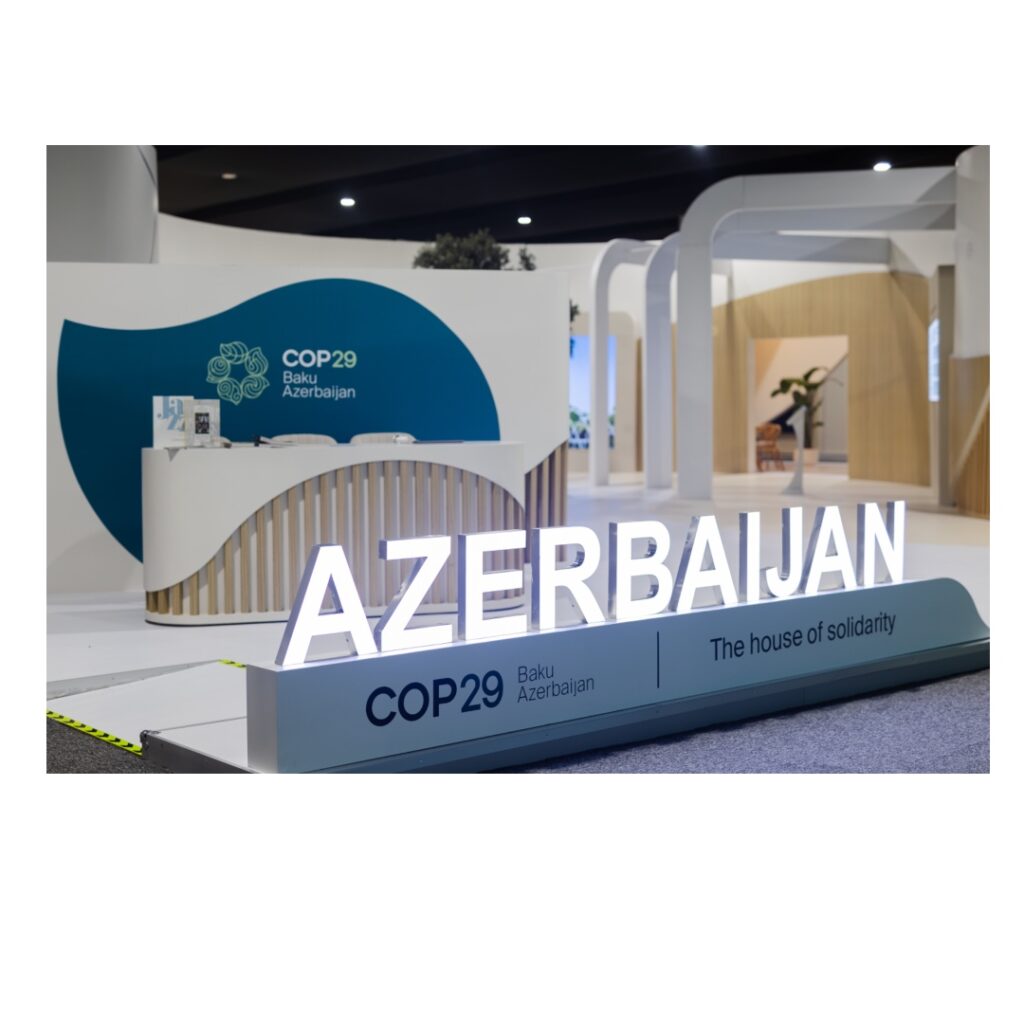What can we expect the ‘finance COP’ to Offer to India?
With the true financial need running into trillions, COP29 is where those ambitions must turn into concrete financial support.

As COP29 has begun in Baku, the stakes on climate finance negotiations are high. Dubbed the “Finance COP,” this pivotal conference must move from rhetoric to action, delivering on years of unmet climate finance promises. At its heart lies a singular challenge: how to craft a system that not only addresses the vast funding gap but also prioritises equity and justice for nations most vulnerable to climate impacts. For India, a long-standing voice for the Global South, the principles it has championed – common but differentiated responsibilities, accessibility, and transparency – can provide a blueprint for building a climate finance framework that empowers all nations to tackle the crisis while pursuing sustainable growth.
From COP28 to COP29: Building on the momentum
The 2023 conference in Dubai, COP28, closed the first Global Stocktake, revealing the urgent need for course correction in global climate action. This stocktake underscored the inadequacies in current commitments to meet the 1.5°C target and highlighted the necessity for robust climate finance mechanisms. COP28 set the stage with the “loss and damage” fund and reaffirmed the target of USD 100 billion annually for climate support. However, with the true financial need running into trillions, COP29 is where those ambitions must turn into concrete financial support.
India, representing a significant portion of the world’s population vulnerable to climate change, expects COP29 to finalise a New Collective Quantified Goal (NCQG) that doesn’t just speak to the global agenda but addresses the specific needs of nations facing the brunt of climate change impacts. India has proposed that this NCQG should entail at least USD 1 trillion in annual financial flows from developed to developing countries by 2030. This ambitious target aligns with the Independent High-Level Expert Group’s (IHLEG) recommendation for mobilising USD 1 trillion annually for developing countries to achieve their climate goals. To that end, India’s call at COP29 can ensure secure, equitable, and transparent climate finance mechanisms that allow developing countries to implement ambitious climate plans.
From promises to action: What India needs
As a rapidly growing economy balancing developmental goals with climate commitments, India seeks to mobilize investment to achieve a low-carbon, climate-resilient future. This includes funding for renewable energy, climate-resilient infrastructure, and adaptation programs, particularly in rural and coastal regions most at risk from climate impacts. India’s demand is simple but essential: climate finance that prioritises grants and concessional loans, avoiding debt traps and ensuring that support translates directly into action.
Moreover, India’s path to sustainability is interwoven with the need for technology transfer and capacity building. For COP29 to succeed, financing mechanisms must extend beyond monetary support to include technological partnerships that empower India and other developing nations to innovate and scale climate solutions independently. Accessing climate finance shouldn’t be hindered by procedural barriers; instead, it must be streamlined, allowing India to take decisive steps toward climate resilience.
Equity at the heart of climate finance
One of the core debates at COP29 is expanding the contributor base to include emerging economies and oil-producing nations. Developed countries advocate for a broader pool of contributors, while countries like India emphasise the principle of “common but differentiated responsibilities.” For India, this debate goes beyond finances – it’s about justice and accountability. As a country still navigating energy and development needs, India’s stance is resolute: developed countries, responsible for a larger share of historical emissions, should shoulder a fair portion of climate finance obligations.
India’s position underscores a broader ethical question for COP29: will climate finance remain a responsibility of those who caused the crisis, or will it be redefined in a way that risks stalling global progress? As the largest democracy, India’s advocacy for fairness in climate finance reinforces the call for a framework that respects developing nations’ needs and doesn’t shift burdens unfairly.
Charting a path for a fairer climate future
COP29 is an opportunity to create a transparent, accountable climate finance framework that aligns with India’s sustainable growth trajectory. Public finance must lead, particularly for adaptation projects that require grants due to their limited commercial return potential. While private investments play a vital role in clean energy, they cannot drive adaptation alone. For COP29 to succeed, establishing a framework that ensures climate finance is new, additional, and accessible can allow developing countries to make long-term climate advancements.
Equally critical is the need for a standardised accounting framework to prevent double-counting and ensure transparency. India’s vision for COP29 is a finance system that can genuinely empower developing nations, transforming the climate finance narrative from mere financial transactions to genuine, scalable support for climate resilience. This clarity is essential for India as it prepares to submit its new Nationally Determined Contributions (NDCs) by 2025. India’s climate goals hinge on the assurance of accessible, adequate, and equitable finance, enabling a low-carbon transition that also creates green jobs and advances economic growth.
India’s role as a climate leader
India’s contributions to the global climate agenda have consistently anchored discussions in equity and justice. The principle of “common but differentiated responsibilities” (CBDR), championed by India, remains a cornerstone of international climate negotiations. Initiatives like the International Solar Alliance have demonstrated how visionary leadership can mobilise global cooperation for renewable energy transitions, while commitments like Net-zero by 2070 showcase a pragmatic balance between ambition and development needs.
Let’s hope that the principles India has long championed – equity, accessibility, and transparency – continue to guide global climate finance. A just and effective climate finance system must not only bridge the funding gap but also ensure that the voices of the most vulnerable are prioritised. The success of COP29 lies in embracing this ethos, setting a tone of equity and justice for the Global South and the world.
—Aman Gupta, Associate Director- Sustain Labs Paris.

